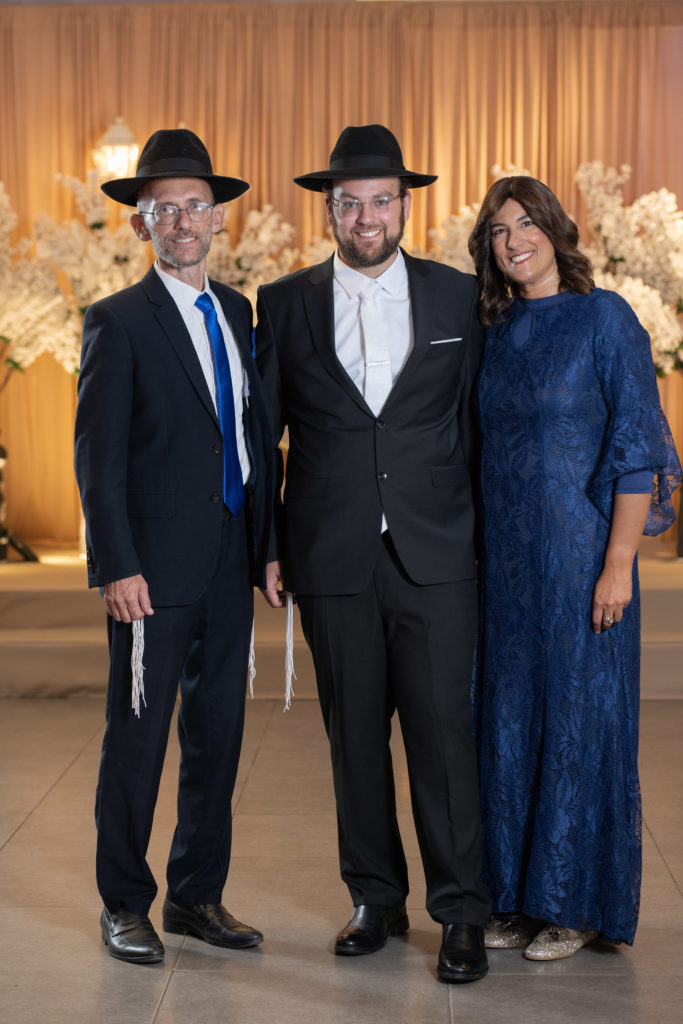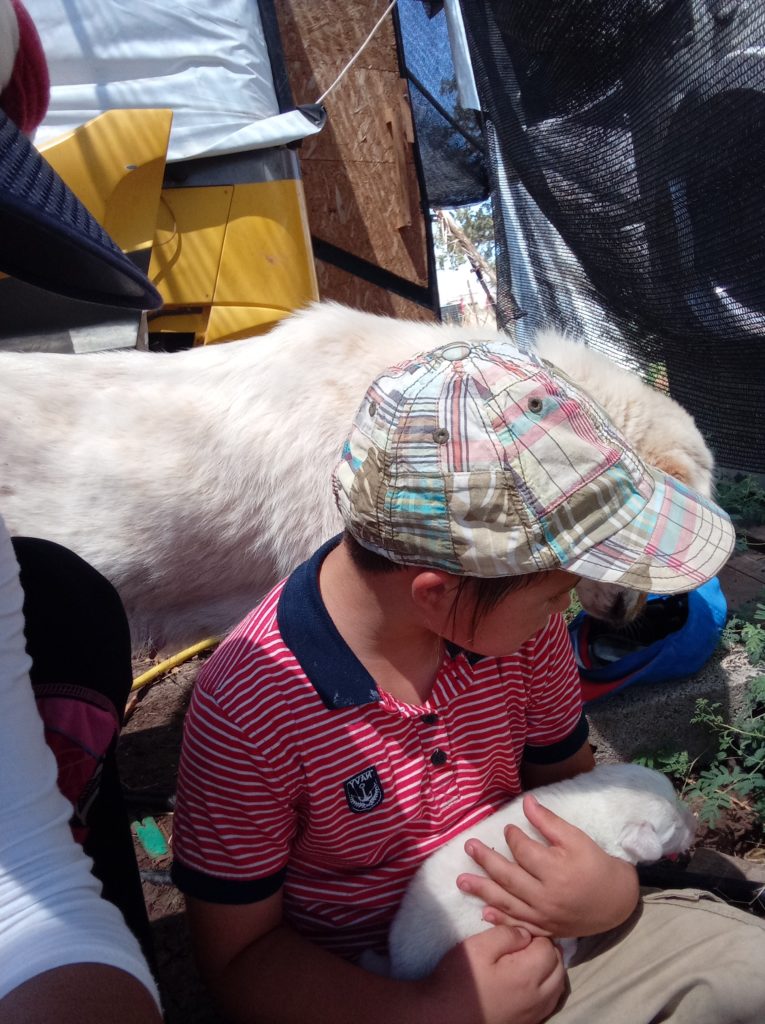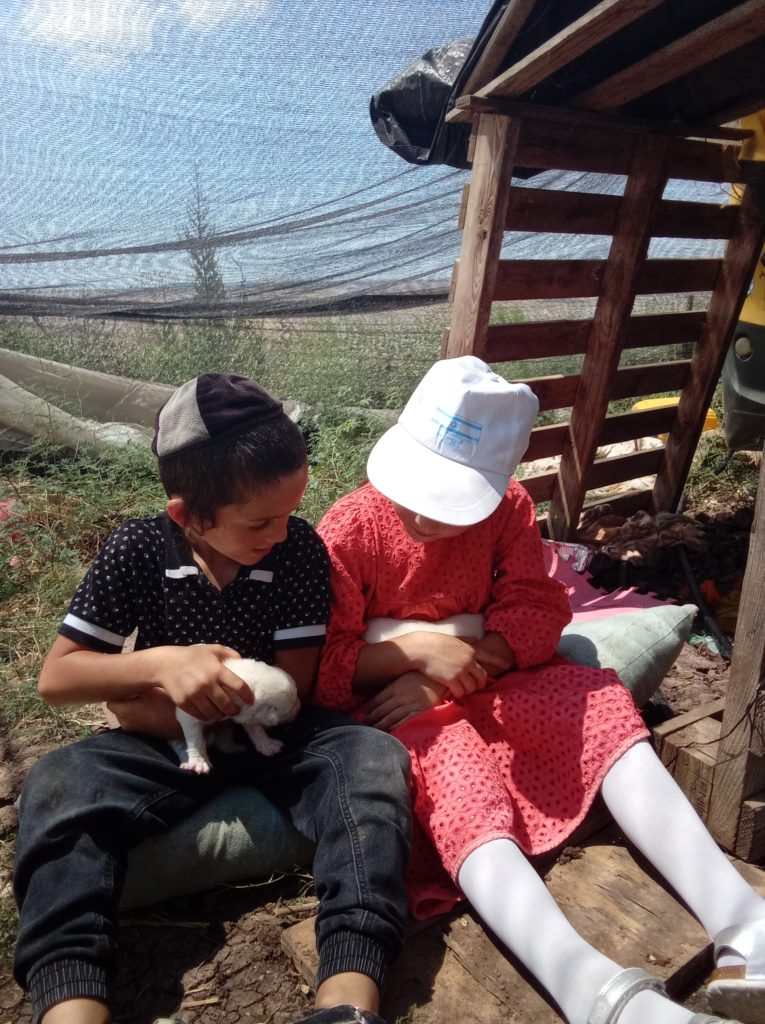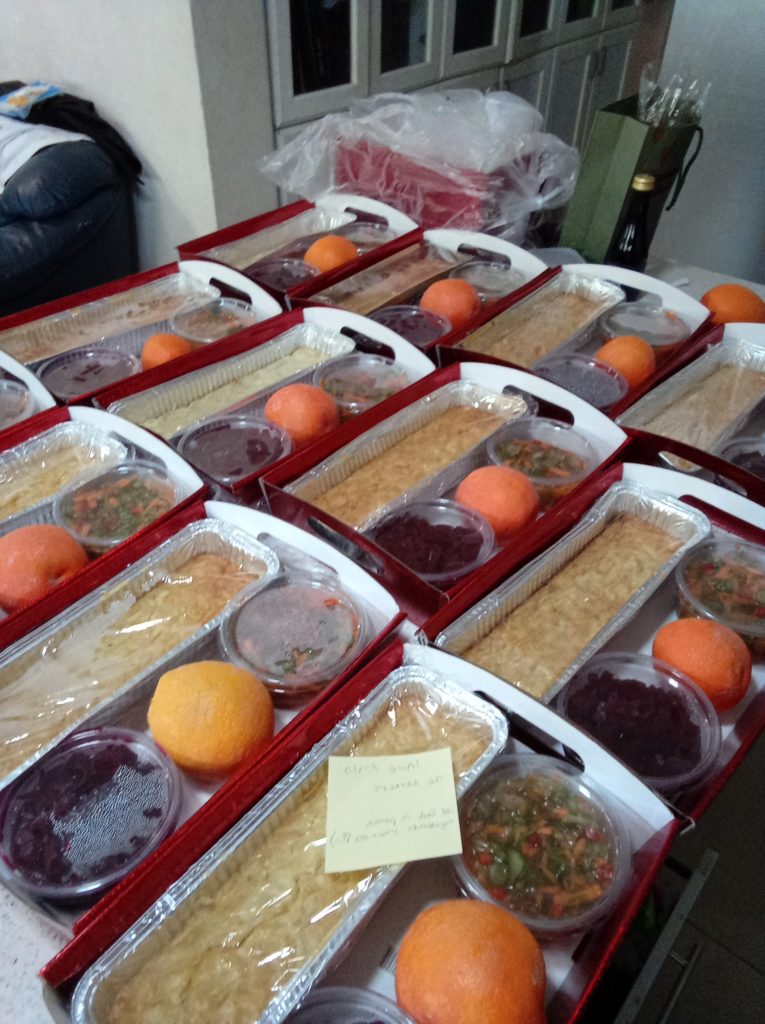I met a friend on the last day of Pesach and she said to me, “How is your holiday going? Probably wonderful.”
Yes, it was wonderful. We enjoyed having almost all of our married children and grandchildren with us throughout the holiday and it was really, really nice. They scheduled their visits so that they came one after another (other than the youngest two couples who came together at the end). Since they didn’t overlap, there were only sixteen of us from a few days before Pesach until a couple of days after Pesach ended, so there weren’t huge numbers at a time.
We all appreciated having time with one family at a time. Though it’s beautiful to have everyone at once, it’s nice to have the slower and quieter pace that allows us to spend time with each family in a more meaningful way. Though to outsiders it could seem like effortless and seamless teamwork because things run harmoniously, even sixteen undemanding people for three meals a day is still a good bit of work.
Our oldest couple will be celebrating their seventh anniversary in six weeks and I’ve never written about the topic of hosting married children because I’ve been concerned that someone might read what I wrote and think I was being negative or critical. I deeply appreciate all of our married children and feel blessed that each of them have married someone we all like so much, so my comments aren’t coming from a negative place at all.
We are extremely blessed that everyone gets along and is respectful of one another so although there are a lot of personalities present, we have a minimum of conflict even with a lot of people coming and going. However, the physical effort of hosting is always present and I’d like to share about that since I think it’s an issue many struggle with it but don’t talk about; it’s a reality that needs to be navigated both physically and emotionally.
—————————
Working together and getting things done as a family is something I value. This is in part because we’ve been a large homeschooling family for years, but also because we’ve lived on one income throughout the years. That meant making conscious choices about how we spend money; it was a reality that if we didn’t pay someone else to do the things we wanted or needed done, we were going to have to do it ourselves.
That meant washing our dishes instead of using disposables, cooking our food rather than eating out, cleaning our home rather than hiring cleaning help, and later on, learning DIY skills to upgrade our home rather than not have the renovations done at all due to the cost being too much. If I ask our children to do something, they generally do it with a willing attitude, and working together has been a positive dynamic for us.
Every family has their own values, their own expectations of how much children participate, what kinds of jobs they do, how much guests help out, and how married couples are hosted. Obviously families can’t and shouldn’t all be the same as ours, and as our children have gotten married, there are different expectations from different people.
One married son told me on Pesach that most families don’t expect their children to help out in the way that I do. That’s very likely true, since most families don’t do most things the way that I do. During the same conversation I learned that my position on a different but related issue is ‘old school’ so maybe the way I do things is out of date. If it’s true that kids don’t help out that much, how do families get things done? Someone has to do them, so who is picking up the slack? It’s not fair or reasonable for it all to fall on the mother.
————————-
Here are some general points to take into account when hosting married children.
For starters, young couples are into each other. Their focus is on each other, and usually they spend most of the time they are visiting interacting with one another rather than the rest of us. They will generally just show up for meals and sometimes not even for all of the meals. Even at the meals, their interactions are mostly with each other.
When a woman is pregnant, she’s tired and wants to rest a lot. She won’t be around except for the meals.
When they have their first child they are busy with their child. This child will take up all of their time and energy; they’ll be tired from being up in the night, from the work of parenting…. When there are more children, it’s so much effort to take care of children in someone else’s home, on a different schedule, and it’s so much work to pack and travel to make the visit – being a guest in someone else’s home is already a big contribution on their part. They’re exhausted and need to rest.
Someone told me that no daughter-in-law likes to be at her in-laws home; this was said so I wouldn’t take the lack of enjoying being here personally and understand it’s a global phenomenon. As a mother-in-law who wants all of our children to feel comfortable, that’s a discouraging thing to hear but I certainly understand it’s more comfortable to visit the home in which someone was raised and where everything is familiar. In raising children I’ve found boys to be more easygoing than girls, and have also found this to be true of sons-in-law.
People have different strengths and different ways to show their appreciation of the efforts being made to host them. Even for those who want to make a significant effort to help out, their capacity is limited because they need to be present for their spouse and children.
—————
As more and more children get married, the dynamic continues to shift. When our first son got married, I still had two daughters in their early twenties who were extremely helpful, along with my next son. There was plenty of help around me and the extra work involved in hosting a young couple didn’t create much pressure.
Then my two daughters got married within nine months of my son’s wedding. We then had three couples coming to visit for Shabbos, and just one older teenager helping out at the same time that I still had a lot of young children around; the youngest was a baby and the one above him was about five. Our eight, nine and eleven year olds helped out but it’s not the same as the help of older children (everyone was homeschooled at the time so there were no quiet mornings to clean up or cook in advance).
This becomes the reality for most families – the work that was shared by many becomes shared by fewer and fewer people at the same time the number of people being hosted increases.
As our children have married, my husband and I have shouldered most of the work that was previously done by that child. We are still raising a house of children and tending to many other responsibilities, and our work load keeps increasing. As much as I enjoy the holidays, it’s a massive amount of work beforehand, during the actual holiday, and then afterwards (cleanup this year includes washing sixteen sets of guest linens after Pesach).
Thank G-d, I’m organized, I work quickly, I have good stamina, I usually have a good attitude, our teen boys are very helpful – and everything gets done.
As I’m doing all that I do, I continually wonder how other mothers are doing it. Because while they may not have young children around as I still do, they are often older and not necessarily in as good health as I am. There are a lot of expectations and even if you keep things as simple as possible, there’s no way to bypass the work involved unless you take everyone away to a hotel.
I remember asking my first mechutenaiste (mother of the person our child married) after our children were engaged how she had space to have all of her married children at once time. My thought at the time was only on the logistics of hosting everyone together as our family expanded.
She answered, “Avivah, you’re going to see as you get older that you don’t want to have everyone over together. It becomes too much work, too much noise, and you’ll have one family over at a time.” I’m at the point where I’m seeing that shift happen.
To do the cooking for Sukkos back in October, I got up at 3 am for the two days leading to the holiday so that I could cook uninterrupted before the younger kids were around and would need most of my focus. For Pesach I didn’t get up earlier than five in the morning, because I don’t have to supervise the twins as intensely as I did then, so I could also work when they were awake.
Generally I’m glad that I can do all that I do and grateful for my visiting family. Sometimes, though, I feel my efforts are taken for granted and that’s very hard for me.
My primary love language is quality time; I’ll make the effort to spend time with others and appreciate when they do the same. My secondary love language that is almost as strong as my primary language is acts of service; that means I’ll extend myself and work hard for those I care about, but it also means that I perceive love when those around me, help me. Every person perceives and receives love in the way that they give it. When family members don’t want to be around except to eat and don’t offer to help, it’s a double challenge for me, and I have to make a conscious effort to remind myself that it doesn’t mean they don’t value or care about me.
Now, at the same time that I want to appreciate each person as they are and be accepting if helping isn’t something they want to do, I don’t want to be a martyr. I don’t think I can or should do everything on my own, so the issue becomes how and from whom to ask for help. Some married children notice how much I’m doing and want to step in and make it easier for me; others aren’t as geared towards helping in this way.
I try to honor my own need for rest and do what needs to be done in a way that won’t wear me out. For Sukkos and Pesach I use disposable dishes to reduce my workload. I make larger amounts of fewer dishes to simplify the menu. I don’t offer to babysit grandchildren in order to give their mothers a break, though sometimes when asked will agree.
I set boundaries around what I can and can’t do – for example, I’ve told them that we can pick them up from the bus stop twenty five minutes away to save them from needing to take a connecting bus that comes directly here, but not after a certain time of day and if more than one couple is coming, they have to coordinate among themselves because I no longer will make that pickup more than once.
One married child wanted to visit the Shabbos a week before Pesach and stay for a few days. At first I agreed, clarifying that they would have to take care of their own meals and meal clean-up, but then was honest with myself that it was too much pressure for me to have guests at a time when I had so much to do, and told them we would welcome their visit a different time instead.
With time everyone continues to shift and adjust, so I’m very much a work in progress. I would love to hear your experiences and insights into being a married child or parent of married children when being hosted or hosting; please share in the comments what makes things run smoothly or what have been the pitfalls and how you’ve learned to avoid them!
Avivah





